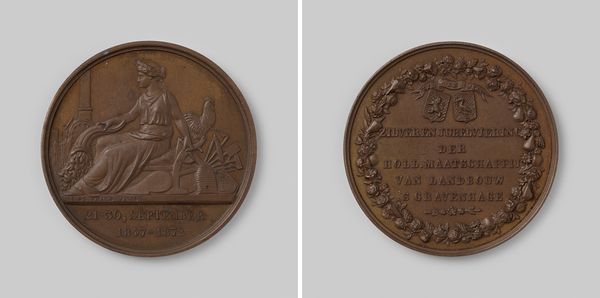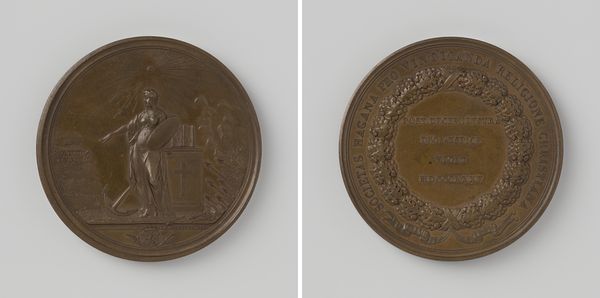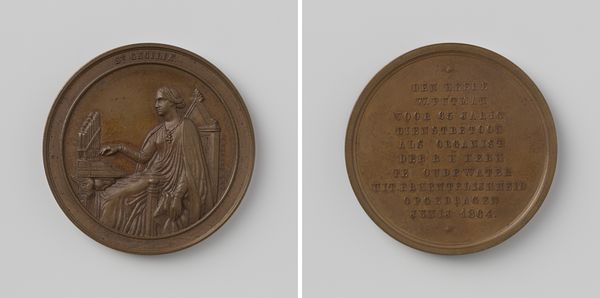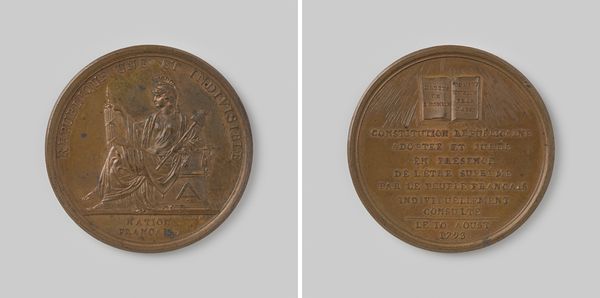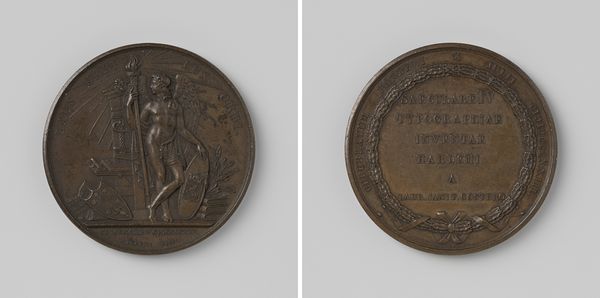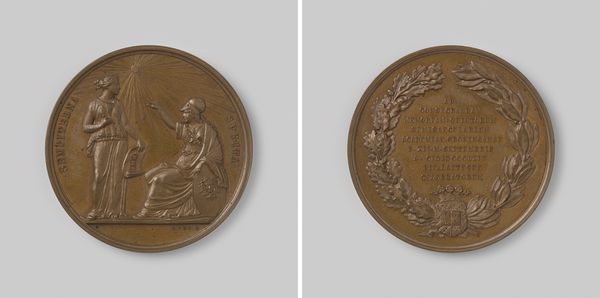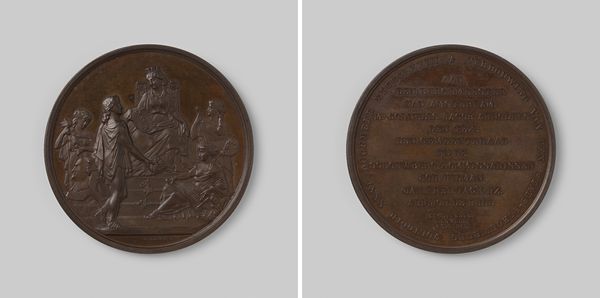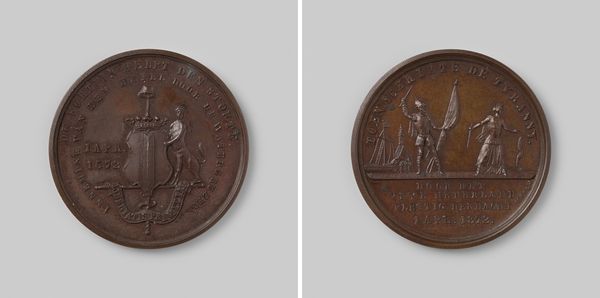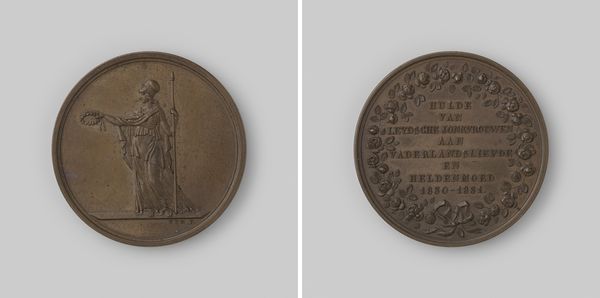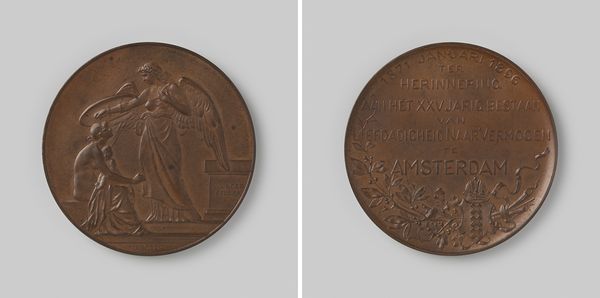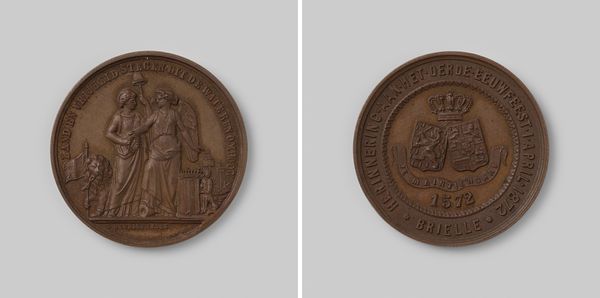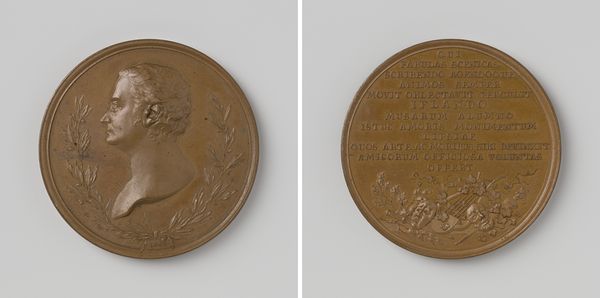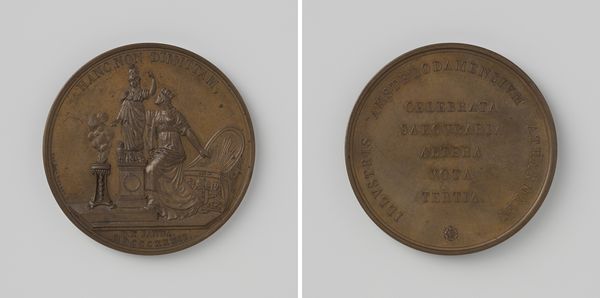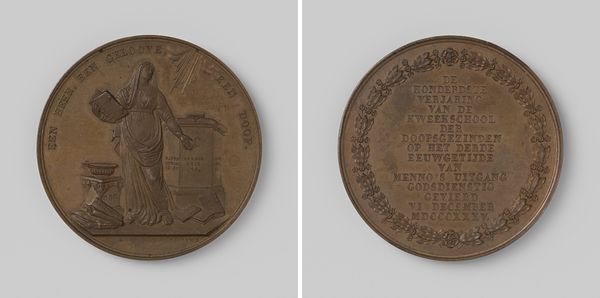
metal, relief, bronze, sculpture
#
portrait
#
narrative-art
#
metal
#
greek-and-roman-art
#
relief
#
bronze
#
sculptural image
#
figuration
#
oil painting
#
sculpture
#
history-painting
#
academic-art
Dimensions: diameter 7.5 cm, weight 1719 gr
Copyright: Rijks Museum: Open Domain
This bronze medal, by Francois Ignace Baetes, commemorates the passing of a law regarding the relocation of the Maas River mouth. The process behind its creation reflects a significant shift in how commemorative objects were made during the 19th century. Rather than being hand-carved, it was likely produced using a mechanized die-striking process, an industrial technique that allowed for relatively quick and inexpensive replication. The raised relief on both sides—a classical allegorical scene on one, text on the other—would have been achieved by pressing the metal between precisely engraved dies. The material itself, bronze, speaks to durability and value, but its method of production hints at a different kind of worth. This medal represents a move away from unique, handcrafted artworks toward mass-produced items that celebrated civic achievements. The relative ease of production meant that such objects could be widely distributed, fostering a sense of shared identity. The medal is, therefore, not only a commemoration, but also a material artifact deeply embedded in its era's industrial and social transformations. It challenges us to consider how meaning is shaped not just by iconography, but also by the very means of making.
Comments
No comments
Be the first to comment and join the conversation on the ultimate creative platform.
